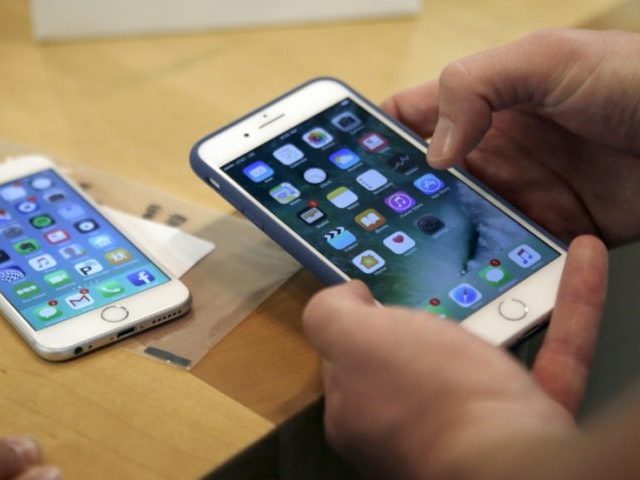The prosecution of a former CIA agent accused of sexually abusing multiple women while on assignment in Mexico City could collapse due to questions over how authorities executed a warrant to search his iPhones.
Brian Jeffrey Raymond resigned from the CIA in 2020 after Mexico City police were called to his government apartment, where a naked woman had appeared on his balcony screaming for help. Later that year in Virginia, agents with the Diplomatic Security Service executed a search warrant to examine Raymond’s phones, which reportedly contained hundreds of photos of naked women that he allegedly drugged and sexually abused while they were incapacitated.
Though Raymond had struck a plea deal in July 2021, admitting to two accounts of sexual abuse, his defense team withdrew the plea last year after questions arose over how the agents searched his phones. Per NBC News:
The two iPhones Raymond possessed — one personal, one for work use — were locked with encryption, and could be unlocked with a passcode or fingerprint. As is standard, the warrant allowed the agents to force Raymond to use his finger to unlock the phone. But courts have held that law enforcement can’t force a target to give up his passcode, because that would violate the Constitution’s Fifth Amendment ban against forced self-incrimination.
Agents took the phones from Raymond after meeting him in the lobby of his hotel, but he had turned them off before handing them over. Accessing them at that point required the passcode, which the agents did not have. They went back to the hotel an hour later after consulting with a Justice Department prosecutor and told Raymond he was compelled to use his thumbprint to open the phones. But the agents failed to keep the phones from locking, so they went back a third time at the prosecutor’s urging, and Raymond provided his passcodes, allowing them to change the settings so they could continue to access them, court records show.
Raymond’s defense has argued that the agents violated his rights by conducting multiple searches beyond the initial search. They also claim that the agents badgered Raymond into giving up his passcode. By allowing Raymond to withdraw the plea deal, federal judge Colleen Kollar-Kotelly agreed that the searches could have violated his rights under the Fourth Amendment, which guards against unreasonable searches and seizures, and under the Fifth Amendment, which says a person cannot be forced to testify against themselves.
“The agents’ [plan] for executing the warrant shows they were doomed to fail because they had no viable plan for maintaining access after using biometrics to open the phones,” Raymond’s defense wrote in court papers. “Unfortunately, during the seizure the agents made matters worse by suggesting and allowing Mr. Raymond to turn his phones off, disabling biometric features, which was their only hope of gaining compelled initial access to the phones.”
“They therefore needed PIN codes and, eventually, passwords, to get and maintain access to the phones,” the defense continued. “However, Mr. Raymond asked for an attorney and refused to provide such codes and passwords. Thwarted by Mr. Raymond’s rightful refusal to provide codes, the agents, acting on the advice of prosecutors, unlawfully and unreasonably seized Mr. Raymond and his phones two additional times until they achieved full access.”
All exchanges between Raymond and the agents were recorded, with the defense charging that agents badgered him up to 27 times to hand over his passcodes.
Judge Colleen Kollar-Kotelly will now have to rule if the photographic evidence on Raymond’s phone will have to be suppressed despite her having originally described him as a “sexual predator with the means and motive to seek out unsuspecting women on dating applications, drug them, abuse them, and leave them without the memory or wherewithal to report his deviant schemes to law enforcement.”
The photos allegedly showed a sexually aroused Raymond in various lewd acts with unconscious women, all of whom he allegedly drugged. He also allegedly had an Internet history of searching for terms like “passed out girl,” “ambien and alcohol and pass out,” and “deep sleep.” Upon his initial plea agreement, the FBI said that Raymond had “admitted to having sexual intercourse with two of the women depicted when both were unable to appraise the nature of the conduct.”
“He also admitted that over the course of 14 years, he recorded and/or photographed unconscious and nude or partially nude women and touched their breasts, buttocks, and/or genitalia while they were incapable of consent,” the FBI said.
Legal experts are divided on how the judge will rule. The Justice Department has claimed that, while the searches may have been unorthodox, they were perfectly legal and within the realm of “good faith.”
“There was no Fourth Amendment violation,” prosecutors said in court papers, adding that agents “re-engaging the defendant to utilize biometrics was not a second or third seizure of the phone, but a reasonable continuation of the original seizure.”
“The act of entering the passcodes into the phones was not a compelled self-incriminating statement to law enforcement. Moreover, the defendant was not in custody and was not coerced to provide his passcode,” the prosecutors contended.
Paul Roland Bois joined Breitbart News in 2021. He also directed the award-winning feature film, EXEMPLUM, which can be viewed on Tubi, Google Play, YouTube Movies, or Vimeo on Demand. Follow him on Twitter @prolandfilms or Instagram @prolandfilms.

COMMENTS
Please let us know if you're having issues with commenting.